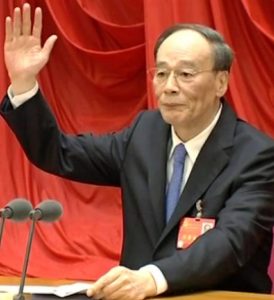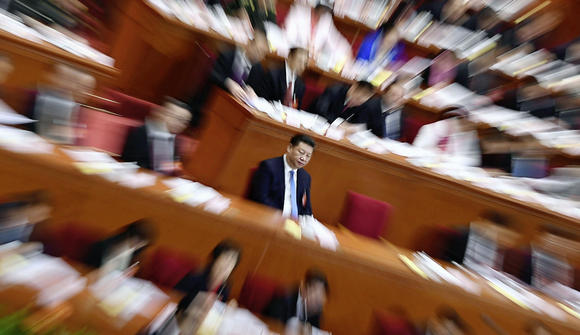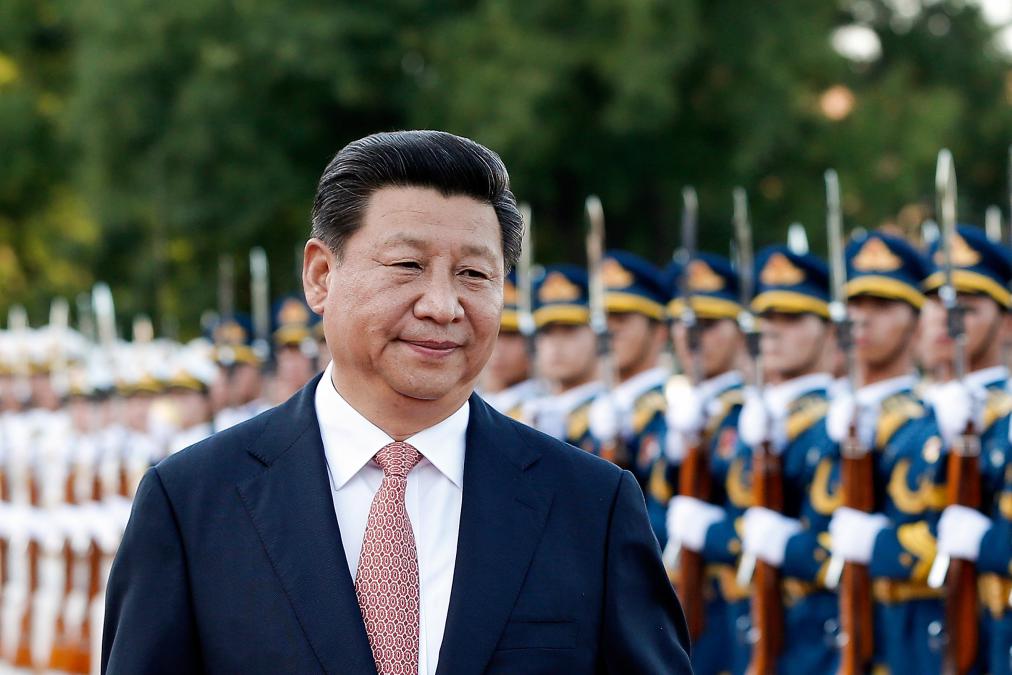Xi Jinping has more tigers, foxes and flies in his sights
This material belongs to: Nikkei Asian Review.
With or without Wang, president’s anti-graft purges to endure through 2022.
TOKYO — The past five years have been an “extraordinary” period in China, or so says the communique issued at the end of a key gathering of the Chinese Communist Party on Saturday.
The five years point to the period that General Secretary Xi Jinping, who doubles as the country’s president, has been in power.
“China has witnessed deep and fundamental changes over the past five years, while its achievements are comprehensive and groundbreaking,” the party members agreed at the four-day Seventh Plenary Session of the party’s Central Committee.
The thinly veiled statement is meant to portray that the five years prior to it were far from memorable, those under predecessor Hu Jintao, which the Xi regime regards as the dark years when reform stalled.
The axe-grinding reflects the vicious power struggle taking place beneath the surface between the current and previous leadership leading up to the party’s 19th national congress to begin on Wednesday. Most of the top leadership body, the Standing Committee of the Politburo, will be replaced at the quinquennial gathering.

First and foremost of those “extraordinary” achievements, in the eyes of the leadership, is Xi’s signature anti-corruption campaign, spearheaded by long-time ally Wang Qishan. Xi has been using the crackdown to rid the political landscape of his foes.
More than 2 million officials have fallen victim to the corruption crackdown in the past five years. They include both “tigers and flies,” a reference to senior and low ranking officials. The most recent tally shows that 280 officials at or above the vice minister level and 8,600 officials at the bureau or department chief tier have been caught.
On Oct. 9, Wang chaired a plenary session of the party’s Central Commission for Discipline Inspection, which he is head of. China’s state-run news outlets said that Wang delivered a speech there, but exactly what the anti-graft czar said has not been made public.
That could be because the context of his words, or the organizational reforms that were discussed and decided upon at the plenary session, are directly connected to political battle taking place, including what happens to the new line up of the top leadership.
Whether Wang himself, a 69-year old Politburo Standing Committee member, will stay on despite being past the unofficial retirement age of 68 is one of China’s juiciest intrigues at the moment.

China anti-corruption purge hits Central Committee members
This material belongs to: Financial Times.
Alleged graft claims 18 of 205 members in group of Chinese political elite.
The Chinese Communist party’s 18th Central Committee, which formally disbanded on October 14, was one of the world’s most elite political organisations. Its 205 members, appointed five years ago, ruled both 90m party members and the world’s most populous country.
Few of them knew that serving on the Central Committee would prove to be one of the most dangerous jobs in the China.
From December 2012 to October 2017, 18 sitting Central Committee members — almost 9 per cent of the total — were detained for alleged corruption. To date six have been formally tried, convicted and sentenced to jail terms ranging from 12 years to life.
They are among the highest profile victims of President Xi Jinping’s historic anti-corruption campaign, which has ended the careers of more than 150 government ministers, army generals and state-owned enterprise executives.
They are also unlikely to be the last as a party congress begins deliberations today to appoint a new Central Committee, which will in turn rubber-stamp Mr Xi’s second-term leadership team.
“The anti-corruption campaign has gathered unstoppable momentum,” Tuo Zhen, a party congress spokesman, said on the eve of its opening. He added that the campaign’s successes meant that officials now “dare not” engage in corruption. As a next step, party and government anti-graft bodies will be merged “under one roof” to ensure that officials “cannot” do so.
“I doubt that Xi will stop the campaign as it is popular [with the public],” adds Steve Tsang, a Sinologist at the School of Oriental and African Studies in London.
The anti-corruption campaign has been a potent political weapon for Mr Xi and Wang Qishan, the party’s discipline tsar. The two men have used it to help shape the composition of the party’s incoming 25-member politburo and seven-seat Politburo Standing Committee, which will be revealed next week.
18 – Number of Central Committee members who have been detained by corruption investigators since 2012, almost 9 per cent of the total.
Since the beginning of this year alone, an unprecedented seven Central Committee members have been detained by Mr Wang’s Central Commission for Discipline Inspection, compared with four in 2016.
Most significantly, in July Mr Xi and Mr Wang for the first time purged a sitting politburo member, Sun Zhengcai. Installed by Mr Xi’s predecessors, Mr Sun, 54, was the politburo’s youngest member and therefore in pole position to succeed either Mr Xi or his premier, Li Keqiang, in 2022.
Mr Sun’s removal has instead paved the way for one of the president’s protégés, 57 year-old Chen Min’er, to join the politburo and possibly even leapfrog onto the Politburo Standing Committee as well. Qiao Mu, a former professor at Beijing Foreign Studies University now living in the US, says such machinations are the main preoccupation of the party’s quinquennial congresses. “Party congresses are held to sort power struggles, personnel arrangements and ideological matters,” says Mr Qiao. “They do not discuss detailed policies.”
The last member of the 18th Central Committee to be brought down for corruption was Wu Ai’ying, who was removed from her justice minister post in February without explanation. Ms Wu, whose detention on corruption charges was only confirmed at the weekend, will be subject to the same arbitrary and opaque judicial procedures that hundreds of rights lawyers, labour activists and dissidents endured under her watch.
Other missing members of the party’s 18th Central Committee highlight the methodical manner in which Mr Xi has established himself as China’s most powerful leader since Deng Xiaoping.
Early victims such as Li Dongsheng and Jiang Jiemin, detained in 2013 and 2015 respectively, were regarded as allies of one of Mr Xi’s main political rivals, Zhou Yongkang.
Ling Jihua was the de facto chief-of-staff of Mr Xi’s predecessor, Hu Jintao. This humiliation made it difficult for Mr Hu to overshadow Mr Xi’s administration much as his own years in power were overshadowed by Jiang Zemin, who headed the party from 1989 to 2002.
Three disgraced members of the 18th Central Committee were also generals in the People’s Liberation Army, which has undergone a radical restructuring under Mr Xi. Two other PLA generals and 18th Central Committee members are also reportedly under investigation for corruption.
On Tuesday, Mr Tuo highlighted the cases against Mr Sun, Zhou, Ling and two PLA generals. “These demonstrate that anyone who has violated party discipline or state laws will be punished, no matter how high his position is,” he said.
Xiang Junbo, who headed China’s insurance regulator, and Wang Min, party boss of Liaoning province, fell as anti-corruption investigators turned their attention to cleaning up the financial sector and enforcing painful economic restructuring measures on heavy industrial centres such as Liaoning.
Under Mr Wang, whose alleged failings included “dereliction of duty”, Liaoning was found to have faked economic data while almost half of the province’s national parliament delegates were sacked for allegedly buying their seats.


